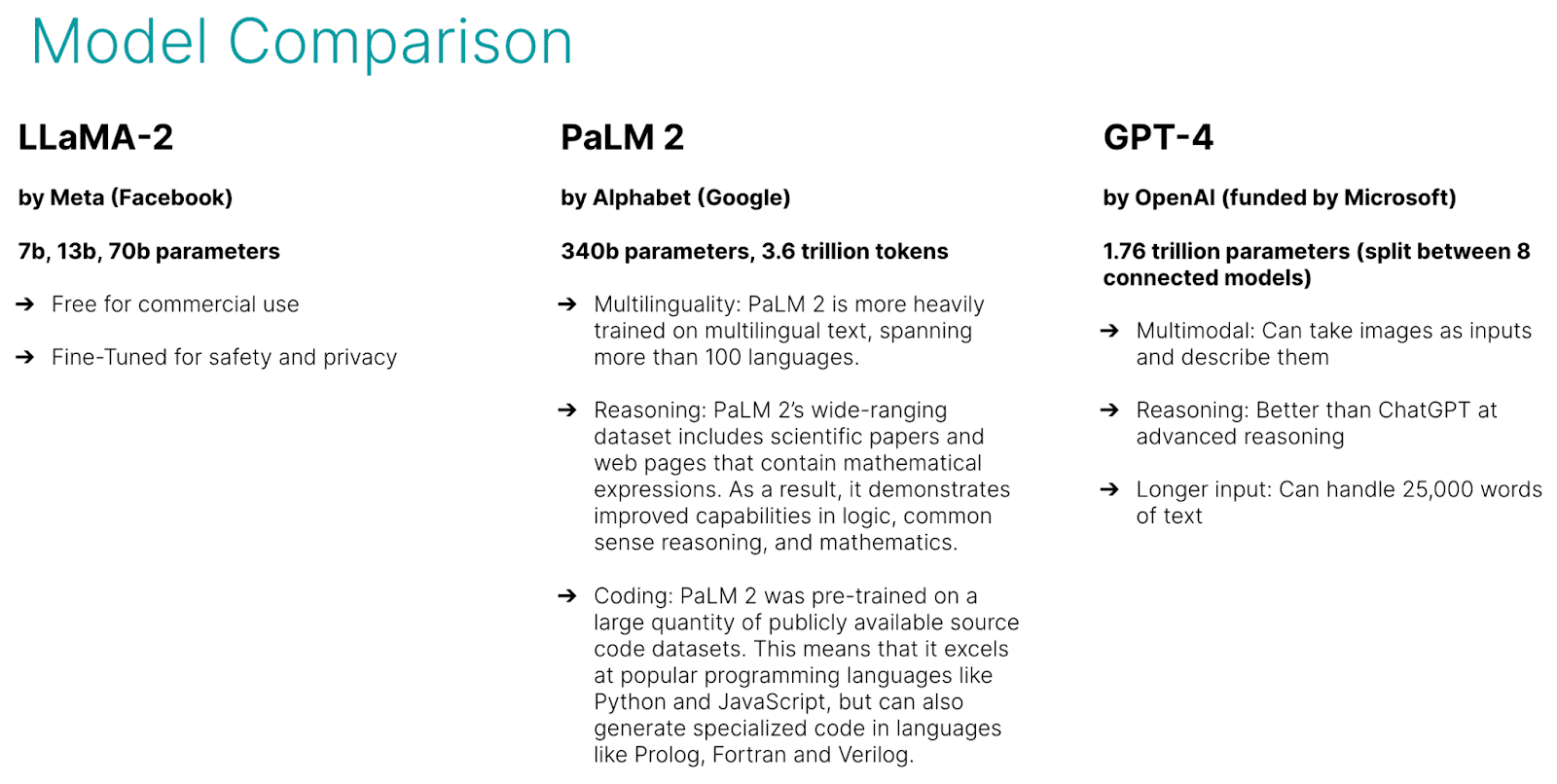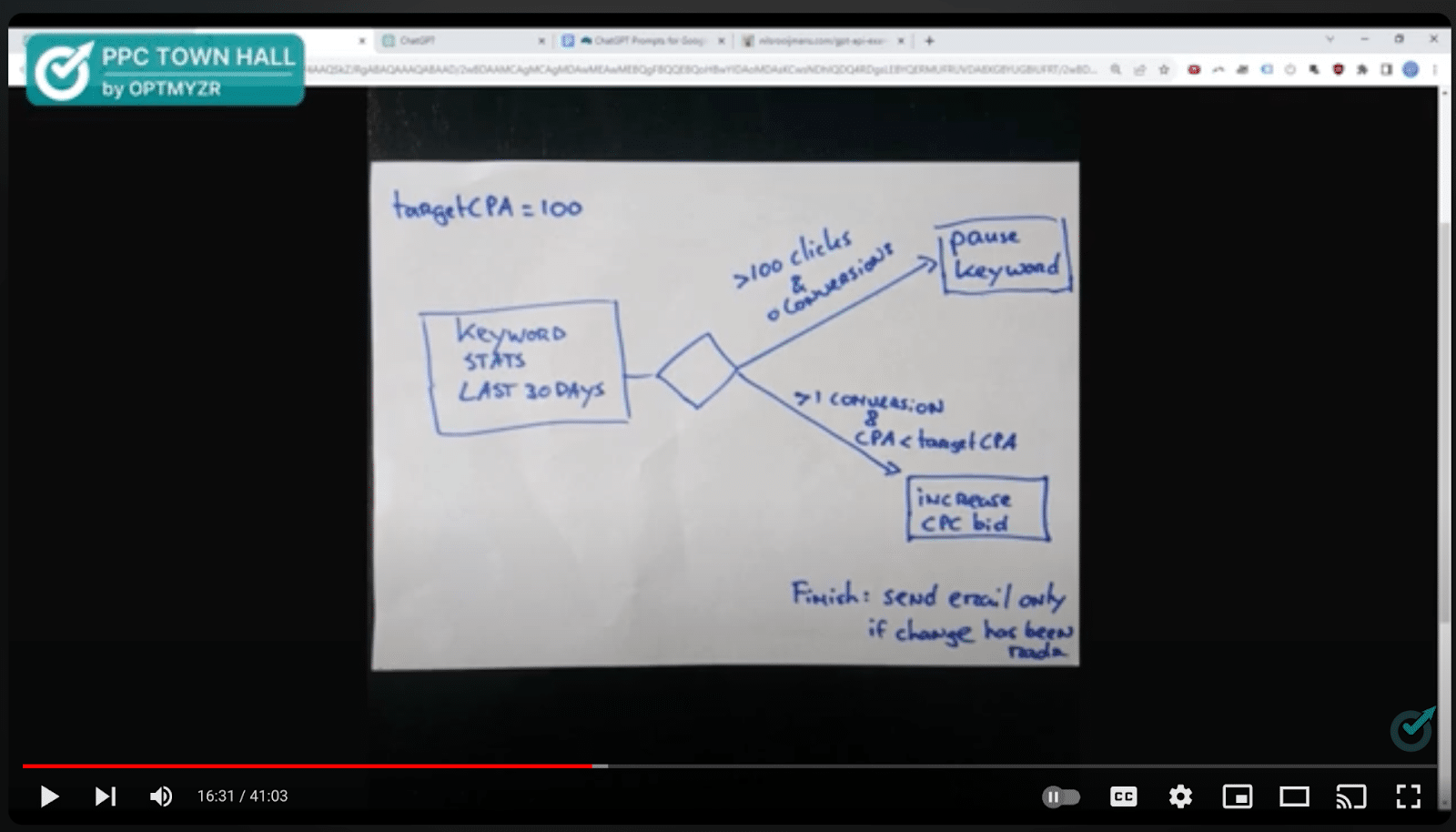It’s hard to believe it’s only been a year since ChatGPT burst onto the scene and captured the world’s attention with its remarkably adept chatbot that generates human-like text on command.
Once users moved on from trying the chatbot for silly things like writing jokes or letters in Shakespeare’s voice, more useful applications emerged.
- Teachers figured out how to use large language models to teach complex topics to students.
- Hollywood writers negotiated new contracts to continue earning a living when genAI could use their ideas to create new plot twists.
- And software companies added genAI to their tools to simplify mundane tasks.
For PPC marketers, ChatGPT also unlocked game-changing potential. Here’s a look back at ChatGPT’s first year and what we can expect next from this transformative technology.
Looking back at ChatGPT’s debut
ChatGPT launched on Nov. 30, 2022, offering free access to what seemed like an impossibly smart AI chatbot. Built on OpenAI’s GPT-3.5 language model, it showcased an unprecedented ability to understand context, follow logical reasoning, and respond to prompts with coherent, convincing text.
Almost overnight, people began using it to write emails, blog posts, code, and ad copy. The hype amplified as users realized this wasn’t some narrow AI but a foundation for the next wave of computing revolution with implications across countless industries.
Since the introduction of ChatGPT and other genAI models a year ago, several industries have undergone significant transformations.
Our industry is among those impacted as generative AI has streamlined the process of producing various content, from blog posts and social media updates to landing pages, keywords, and ad copy.
The technology’s ability to quickly generate high-quality text has been a boon for marketers, saving time on ideation and execution of projects.
Google took things further and introduced a generative AI campaign creator in May.
Announcements like this reinforced the question that’s been on digital marketers’ minds for years: what will our roles look like as AI continues to do more of what we used to do manually?
To help answer that, let’s first look at what chatGPT has done for search marketers.
Early uses for GPT-3.5 in PPC
Naturally, PPC experts wondered how we could harness ChatGPT’s talents. Even in its initial form, I found plenty of uses:
- Generating keyword ideas from seed keywords or landing page URLs.
- Classifying long keyword lists into coherent ad groups.
- Composing compelling ad headlines and descriptions.
- Providing landing page optimization suggestions.
- Analyzing search query relevancy for improving ads targeting.
To do some of these tasks at scale in spreadsheets, I started using GPT extensions for Google Chrome. Also, I played extensively with the OpenAI API Playground, where all the settings that impact performance can be dialed in.
For example, the temperature setting can be used by advertisers to make the system more or less creative, something that is important in regulated industries where more creative ad text ideas could violate regulations.
These early applications demonstrated the immense potential for ChatGPT in PPC account management and campaign optimization. But they were just a taste of what would soon become possible as the AI advanced.
Dig deeper: How to use ChatGPT to boost your PPC efforts
GPT-4 is a better but more expensive writer
In March 2023, OpenAI introduced GPT-4, which brought meaningful improvements. The model was trained on more input parameters, 25 times more than Meta’s Llama-2 model and five times more than Google’s PaLM-2 model. As a result, it produced higher-quality writing.
It was also better at math, which matters greatly in PPC, where optimization decisions depend on a correct mathematical or statistical data analysis.

While earlier versions adequately handled simple PPC tasks like keyword generation, GPT-4 proved particularly useful for long-form text, like that used for email campaigns, blog posts, and landing pages.
The downside was that it was significantly slower and more expensive than previous models. But as more models become available, it opens the door for optimizations. People can evaluate each model’s strengths and weaknesses and decide which LLM and version to use for various tasks.
I found that GPT-3.5 is equally adept as GPT-4 at suggesting keywords. Hence, deploying that model for keyword-related tasks is more cost-effective and faster.
GPT-4 performs better for writing, so the extra cost and latency are worth it when I need to write a landing page copy or a report to be shared with a client.

Dig deeper: ChatGPT for PPC marketers: 15 strategic prompts to use today
ChatGPT launches beta features
In July 2023, OpenAI introduced new beta features for ChatGPT, like Code Interpreter – which was later renamed Advanced Data Analysis. These made entirely new PPC use cases possible.
Advanced Data Analysis helps advertisers gain new insights
A huge upgrade for the sometimes mathematically challenged GPT-4 was its new capability to write and execute Python code.
By uploading campaign performance files directly into ChatGPT prompts, we can now have it do a statistical analysis and create graphs to provide new insights and optimizations.
Plugins let advertisers connect GPT with live data
One of the most powerful upgrades ChatGPT has gained is support for plugins, which are special add-ons that greatly expand its capabilities. Plugins allow ChatGPT direct connectivity with external datasets, documents, and live websites rather than just its own fixed indexed knowledge.
This means you can feed ChatGPT a raw .csv file of PPC campaign statistics for advanced analysis, upload your entire catalog of product descriptions to improve copywriting relevance, or even have ChatGPT scrape and summarize a landing page you’re optimizing in real time.
Would these new capabilities start humans down the path of irrelevance in digital marketing? Not quite.
Generative AI as an assistant, not a replacement
It’s easy to envision generative AI wholly automating digital marketing tasks. But in practice, these tools function best as assistants augmenting human capabilities, not replacing them.
As I first explored in 2017, well before the dawn of generative AI, humans play three essential roles in digital marketing:
- The teacher.
- The doctor.
- The pilot.
Even though AI has changed from mere pattern recognition to generating content, I believe these roles still apply.
- The teacher curates data and fine-tunes models like ChatGPT to align with an organization’s objectives and industry context.
- The doctor prescribes solutions, like the right LLM for the business challenge.
- The pilot vigilantly monitors performance, intervening when generative AI goes off course.
Generative AI takes over tedious tasks like writing repetitive ad copy and landing pages. This frees up teachers, doctors, and pilots to operate more strategically.
For instance, an account doctor can now invest time previously spent copywriting into data analysis and consultation. Or they can prompt ChatGPT to summarize key account insights in client-ready reports. The tool generates content, while the human provides creative direction and quality control.
So, don’t view generative AI as a threat. See it as a collaborative assistant amplifying human strengths. The marketing teams that embrace this human-AI partnership will pull ahead of the competition. But it requires accepting that the future remains human, with AI merely lending a helping hand.
What’s next: OpenAI Dev Day Announcements
At OpenAI’s DevDay on Nov. 6, 2023, they revealed major upgrades that give a glimpse into the future potential for PPC professionals.
Most notably, OpenAI launched GPT-4 Turbo, which supports much longer prompts of up to 128,000 characters. That means you can now submit the equivalent of around 300 pages of text to better help the AI understand what you want – to give it in-context learning: the data it should use to formulate its response to your prompt.
This massively expanded context window could empower ChatGPT to handle more advanced PPC analysis and optimization tasks.
From whiteboard to ad script
Additionally, OpenAI announced new modalities like vision, allowing GPT-4 Turbo to ingest images.
In one cool example illustrated by PPC scripts expert Nils Rooijmans, he gave GPT a photo of a whiteboard sketch of an optimization decision tree and asked GPT to write a script to handle that use case.
It understood the logic from the whiteboard drawing and suggested the relevant Google Ads Script code to automate that task.

Reduced pricing for GPT
OpenAI also reduced pricing across the board. Input tokens for GPT-4 Turbo are now 3x cheaper at $0.01, while output tokens are 2x cheaper at $0.03.
Broader access to lower-cost capabilities like fine-tuning could help PPC managers train custom AI tools tailored to their unique accounts.
Between upgraded foundation models, new modalities like vision, and more affordable building blocks, OpenAI’s offering paints an exciting picture.
The next level of PPC optimization will be AI-assisted, thanks to innovations in the tools you already use that can leverage the latest innovations in generative AI.
The future of generative AI for PPC
The future looks incredibly bright if ChatGPT can accomplish so much in just one year. Here’s what I expect next:
- Improved accuracy in analytics and math computations.
- Integration with PPC platforms through plugins for simplified access to account data.
- Capability to dynamically write scripts and rules compatible with your PPC tool of choice to streamline optimization.
- Easier access to personalization through GPT, “fine-tuning,” and longer prompts to help align responses better with your goals.
- Low-code tools for building custom AI models tailored to clients’ businesses.
ChatGPT in PPC: A year of innovation, integration and impact
The past 12 months have transformed our expectations of what AI can do. As the algorithms continue advancing, our job is to push the boundaries of AI to boost PPC performance beyond human limitations.
In a world of AI assistants, the answer should never be that you can’t do something but rather that you haven’t yet tried something. AI can teach and help you execute your projects faster than ever.
via Search Engine Land https://ift.tt/OUtm8Lw

No comments:
Post a Comment